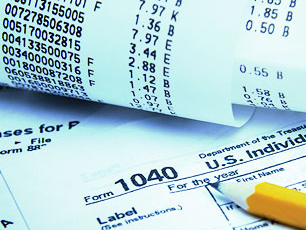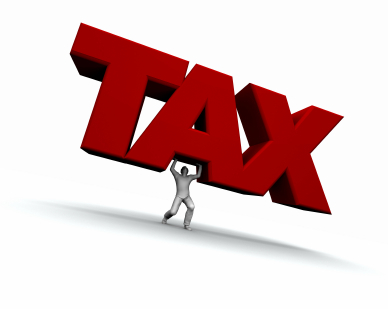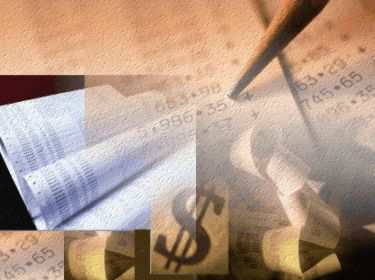
Article Contribute by Bernard B. Kamoroff, C.P.A, author of 422 Tax Deductions for Businesses
Tax Filing Season is here, and there are still several things you can do to reduce your taxes for 2009. Here are Seven Tax Tips that can possibly save you a lot of money on your 2009 taxes. Remember, “It’s not how much money you make, it’s how much money you keep!”
Tip #1. For businesses on the cash accounting system (most small businesses), expenses are usually deducted the year paid. However, if you charge any business expenses to your bank credit card (VISA, MasterCard, American Express, or Discover) you can deduct those expenses the year incurred even though you pay them in the next year. Go through your December charges and add them to your December expenses.
Tip #2. Normally, the cost of your inventory (goods for sale, parts) cannot be written off until sold. But if you have any damaged inventory, inventory that is out of date or out of fashion, goods unsalable for any reason, you can write off this inventory for 2009.
Tip #3. Your business expenses are deductible even if you paid them from your non-business bank account, personal credit card or debit card, or cash. Take a few minutes and go through all of your expenses for the year. If the expenses were for your business, deduct them. (Does not apply to corporations).
Tip #4. Manufacturers, and some construction, engineering and architecture firms, software developers, and video producers, are eligible for a 9% “manufacturer’s deduction” for income earned from domestic production. This “bonus” deduction is in addition to the deductions already allowed for manufacturing expenses.
Tip #5. In addition to your deductible business expenses, you may qualify for special “Tax Credits” available to businesses. Tax credits are very specific and limited, but if you qualify, the credits reduce your taxes dollar for dollar. Tax credits can be a real tax pot-of-gold.
Tip #6. You can put some of your business profit into an IRA or a SEP-IRA, and not pay income taxes on the profit until you withdraw the money. You have until April 15, 2010 to set up and contribute to an IRA or a SEP-IRA for the 2009 tax year.
Tip #7. Finally, and one almost sure way to reduce your taxes, is to re-examine every purchase, every expense you made in 2009. Make sure you’ve taken all the business tax deductions you are entitled to: expenses you didn’t record in your ledgers, expenses you didn’t think were deductible, “personal” expenses that qualify as business expenses. Neither the IRS nor your accountant is going to know about a deduction you forgot to take. It’s entirely up to you.
About the Author
Seven Tax Tips for Business are excerpted from 422 Tax Deductions for Businesses and Self-Employed Individuals by Bernard B. Kamoroff, C.P.A., 9th Edition, 2010. www.bellsprings.com. Toll free 800-515-8050




